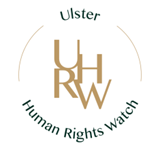There’s a callous indifference about the way innocent victims have been left high and dry over the Compensation Scheme that was due to go ‘live’ at the end of the month.
The confirmation that the long-awaited scheme would be delayed was devastating news. Compensation applications were eagerly awaited. Many innocent victims are struggling with money worries and were looking forward to some financial relief.
Ulster Human Rights Watch (UHRW) has had mounting concern about the state of readiness of the Victims and Survivors Unit in the Executive Office at Stormont.
We emailed the Unit on the 18th May asking for details of a website address for the scheme and an email address and telephone number which victims could use if they had questions and needed assistance.
The reply arrived in my Inbox on Friday, 22nd. It stated: “Discussions are ongoing with Ministers about arrangements for the Scheme. We are therefore not yet in a position to provide the information you have requested. We will hold your request and provide you with the information once available.”
So, unbelievable as it may seem, seven days from the planned start of the much-vaunted aid package, glaring deficiencies in the operation and management of the scheme were exposed.
Little or no preparatory work seems to have been done since the Scheme was announced late last year and the legislation passed at the end of January. The ‘architecture’ needed to support the day-to-day operation of the scheme doesn’t appear to have progressed beyond the rough sketch stage.
This whole sorry episode has descended into unseemly political squabbling. The blame game has taken centre-stage with victims once again collateral damage.
The Secretary of State, Brandon Lewis MP, has made it abundantly clear that the £100 million needed to fund the compensation initiative was agreed as part of the Block Grant budget allocated to the Northern Ireland Executive. The First Minister, Arlene Foster MLA, said the scheme was unaffordable without extra Government funding.
The upshot of this spat is that thousands of victims are feeling disrespected and marginalised. Once again, they have been made into a political football between Stormont and Westminster and are naturally very angry. They view what is happening as a shocking inability to simply do what’s right.
The issue throws up several questions that deserve honest answers.
Why was it left so late in the day to postpone the scheme?
Who took the decision to delay its implementation?
Third, why was the groundwork needed to make the scheme operational from 29th May not completed? Was it even started?
What is Sinn Fein’s attitude to the dispute over funding?
Why weren’t steps taken to resolve the funding quarrel long before May?
Couldn’t the dispute have been dealt with before the Coronavirus lockdown in March?
Has Mr Lewis got the necessary paperwork to support his view that £100 million was part of the Northern Ireland allocation from the Exchequer?
Are disagreements between unionist and republican Ministers over who should qualify for compensation a factor in this delay?
Has the Secretary of State issued guidance to the victims’ payments Board regarding circumstances in which a relevant conviction or exceptional circumstances make entitlement to victim’s payment inappropriate?
When will the postponed scheme become operational?
There are two irreconcilable views out there. Which of the two narratives is accurate and correct? It’s time for clarity and some transparency.
Since the introduction of legislation in January, after many false dawns, victims allowed themselves to believe that the finishing line was finally in sight. They were poised to get what they should have been entitled to years ago.
Compensation of between £2,000 and £10,000 a-year would have a significant positive impact on the lives of people injured physically or psychologically by terrorist actions. Their lives were utterly changed when bombers and gunmen carried out their murderous campaigns.
The scheme would not only give much-needed financial help, but it would also afford recognition and acknowledgement to their plight. It’s time to end the political he-said, she-said squabbling and get this Compensation Scheme back on track.
Today, they have been disappointed in a cold and heartless manner. The sooner this great wrong is remedied, and an apology delivered, the sooner innocent victims will get on with making life that little bit more bearable.
